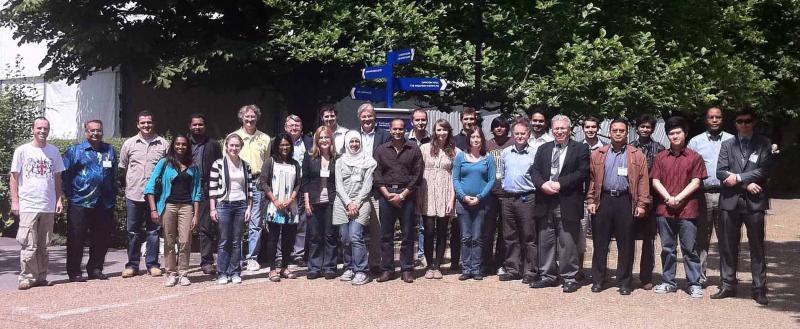Roger D Metcalf DDS, JD
Forensic Odontology
and Some Other Stuff
Odontologists--remember we need basic, foundational research in all areas of our discipline. Are our procedures scientifically valid and reliable?
Critically examine everything we've been taught. Question the scientific basis of every standard, guideline, best practice, or principle followed.
Keep in mind the quote often attributed to W. Edwards Deming: "Without data you are just another person with an opinion." I would add, if you use incorrect data, you may commit forensic malpractice, and, always remember: "First, do no harm."
We insist on evidence-based treatment in health care, why not in forensics?
Merely saying "we're following the science" without verifying that the "science" being followed is actually true is the same thing religions and cults do.
Welcome!
Hello! My name is Roger D. Metcalf and I'm a forensic dentist located in Fort Worth, Texas, U.S.A. The scope of my practice includes primarily identification of unidentified human remains as well as reviewing dental age assessments and bitemark analyses, and civil litigation support in malpractice actions or administrative matters such as fraud investigations. I've been qualified as, and have testified as, an expert witness in forensic dentistry in both state and federal court, and in murder and capital murder trials in Texas courts.
Perhaps to be painfully correct I should say that I'm actually a general dentist with a practice limited to forensic odontology. The State Board of Dentistry properly says we are not allowed to present ourselves as specialists in unrecognized dental specialties. But the particular area of specialized expertise that I claim to have is not in a dental field, rather it is a forensic field.
I do not present myself as a dental specialist, but rather as a qualified forensic specialist that happens to be a dentist.

Above: My class at the Academy of Forensic Medical Sciences
at Bart's and the London School of Medicine and Dentistry, preparing to sit for the diploma examination of the Faculty of Forensic and Legal Medicine of the Royal College of Physicians. A few months later, I took the exam--it was a pretty darn difficult exam, in my estimation, but then, of course, I had never written an exam in England before--luckily law school had prepared me well for the type of exam we took. I passed the exam and my dissertation was accepted!!!!
I used to be very active in organized forensic dentistry--over the years I have been President of the American Society of Forensic Odontology (ASFO), Executive Secretary of the Odontology Subcommittee of the National Institute of Standards and Technology OSAC, member of the Board of Directors of the Southwestern Association of Forensic Scientists (SWAFS), was President of and board-certified by the American Board of Forensic Odontology (ABFO), and I was a Fellow of and Chair of the Odontology Section of the American Academy of Forensic Sciences (AAFS).
I worked full-time as the Director of Human Identification and Chief Forensic Odontologist in a county morgue for almost 17 years, where I supervised the successful identification of more than 8,500 unidentified decedents by the various accepted methods. As noted above, I very proudly achhieved the Diploma in Forensic Human Identification from the Faculty of Forensic and Legal Medicine, Royal College of Physicians (Dip-FHID, FF&LM, RCP). I graduated from Baylor University and Baylor College of Dentistry, and I also hold JD/MBA degrees from Texas Wesleyan University, with a master's degree in Forensic Science Administration from Oklahoma State University, as well. (Please note that Baylor College of Dentistry and Texas Wesleyan University School of Law are now the Texas A&M College of Dentistry and Texas A&M School of Law, respectively.) In addition, I also completed the Fellowship in Forensic Dentistry at the University of Texas Health Science Center at San Antonio Dental School. In adition, I have a master's degree in biology from Texas A&M University-Commerce.
But since I retired from the county, I've cut back on those activities for a number of reasons--among them: 1) I am pursuing a Dotor of Forensic Science degree (with a minor in Statistics) on a full-time basis, so that takes a lot of my time, and, 2) perhaps more importantly, I resigned my positions as President of the ABFO and Chair of the AAFS Odontology Section because I could no longer support teaching the techniques of bitemark analysis and dental age estimation as currently practiced. I don't believe there is any foundation reaserch out there showing that
any of our methods are valid. I still remain a member of the Southwest Association of Forensic Scientists and am a Fellow of the American College of Legal Medicine.
Roger D Metcalf DDS, JD
PO Box 137442
Fort Worth, TX 76136-1442
ph: +1-817-371-3312
fax:+1-817-378-4882
© 2013 - 2024. Roger D Metcalf. All worldwide rights reserved.
No reproduction without permission.
Neither the Tarrant County Medical Examiner's District, Tarrant County, the American Board of Forensic Odontolgy, the American Society of Forensic Odontology, the Royal College of Physicians, Oklahoma State University, nor any other organizaion mentioned here necessarily supports or endorses any information on this website. Any opinions, errors, or omissions are my responsibility, and mine alone. This site DOES NOT REPRESENT the official views of any of these--or any other-- organizations. Similarly, those other organizations may not fully represent my views, either.